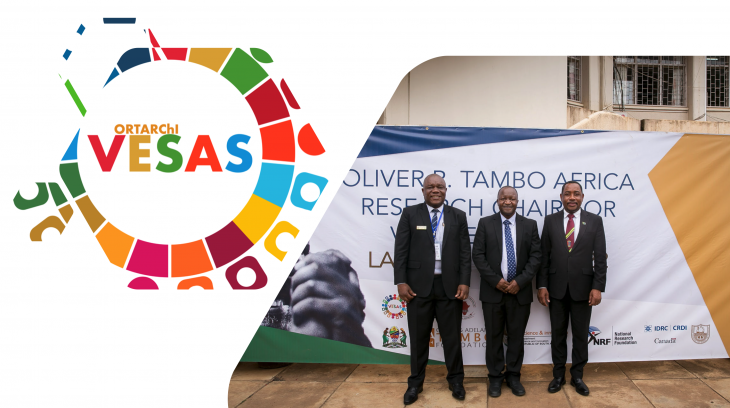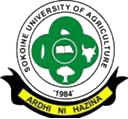
Developing innovative One Health approaches through science and technology driven by genomics, molecular biology and analytical epidemiology in order to improve the risk management of viral epidemics in Africa.
Introduction
On 27 October 2017, the South African Government commemorated what would have been the 100th birthday of Oliver Kaizana Reginald Tambo by establishing the OR Tambo African Research Chairs Initiative (ORTARChI). OR Tambo was one of the South Africa’s most important revolutionary leaders and the longest serving president of the ruling African National Congress (ANC), leading it from 1967 to 1991. ORTARChI is an initiative of the South African Department of Science and Innovation (DSI) and its entity, the National Research Foundation (NRF), in partnership with the Oliver & Adelaide Tambo Foundation, Canada’s International Development Research Centre (IDRC), and seven councils of the Science Granting Councils Initiative in Sub-Saharan Africa, including the Tanzania Commission for Science and Technology (COSTECH). ORTAChI is an innovative, value-adding, and strategic initiative which is driven by a deep belief in inclusivity, competitiveness, and the desire to champion scientific excellence on our beloved continent. Ten host institutions and individual holders of research chairs across seven African countries were selected after a rigorous review process. The research chairs undertake world-class research in priority areas in order to contribute to producing knowledge and advancing research skills in alignment with the African Union’s Agenda 2063 and the Science, Technology, and Innovation Strategy for Africa (STISA-2024) and with the development needs of national governments.
The OR Tambo Africa Research Chair at the SACIDS Foundation for One Health at the Sokoine University of Agriculture, whose chairholder is Professor Gerald Misinzo focuses on Viral Epidemics aiming at developing innovative approaches through science and technology driven by genomics and analytical epidemiology in order to improve the risk management of viral epidemics in Africa. The Research Chair focuses on viral epidemics of animal and public health relevance including antimicrobial resistance. With the recent advances in technology, it is possible to rapidly detect infectious diseases at source (community level), thanks to exploitation of the power of genomics and bioinformatics, nanotechnology, novel information technologies for the capture, analysis and modelling of data and field deployable portable nucleic acid amplification and sequencing devices. Through the early detection of an infectious disease outbreak, a small outbreak can potentially be contained at the local level, thereby reducing adverse impacts. For this reason, early detection offers a cost-effective means for infectious disease management. Genomic information offers the opportunity for the management of infectious diseases and viral epidemics, such as description of the source of pathogens and contact tracing, precise diagnosis of infection, describe transmission patterns, describe new strains of pathogens, advance our understanding of host-pathogen interactions, helps our understanding of infectious disease pathogenesis and immune response and may help guide the development of vaccine candidates and genomic-based diagnostics, and treatment strategies. This Research Chair is intended to contribute to community-level One Health security. The chair is integrated into the SACIDS Foundation for One Health, a regional programme founded in 2008 by universities and national research institutions in five Member States of SADC, hosted at the Sokoine University of Agriculture (SUA). It will impact society by contributing to the SUA Corporate Strategic Plan 2021-2026, Tanzania Poverty Reduction and Growth Strategy Paper (PRSP) and Tanzania Development Vision 2025, Africa Union’s Agenda 2063 (The Africa We Want) and the United Nations Sustainable Development Goals i.e., SDG 1 (No Poverty), 2 (Zero Hunger), 3 (Good Health and Well-Being), 4. (Quality Education), 5 (Gender Equality), 10 (Reduced Inequalities), 13 (Climate Action), 14 (Life Below Water) and 17 (Partnership for the goals).
Learn More
Project Members:





